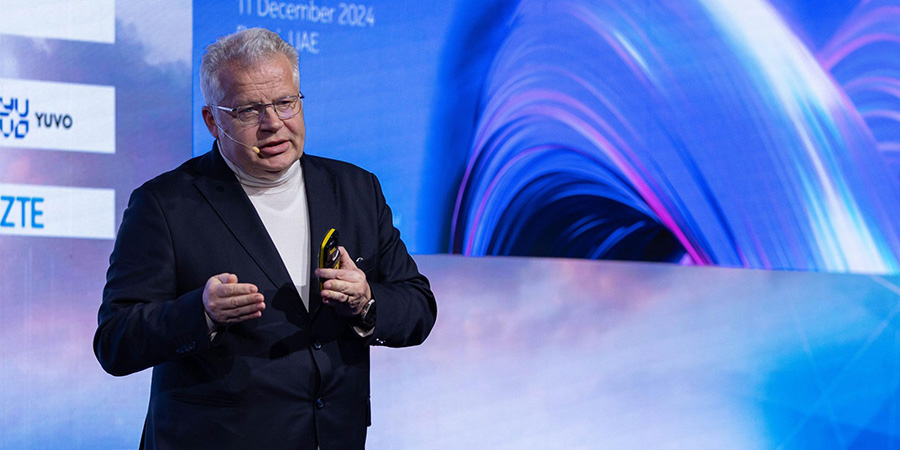Mikko Lavanti’s keynote at the 18th edition of the Telecom Review Leaders’ Summit was a compelling narrative of innovation, resilience, and human-centric leadership shaping the wireless future of the Middle East and Africa (MEA).
Nokia's Cultural Transformation and Empowerment
Lavanti began with a story about a colleague who faced challenges in Africa and had to seek solutions independently. The story illustrates the importance of empowering young engineers to solve problems on their own, rather than relying on directives from those above them.
He acknowledged Nokia’s 30% growth over the last two years, attributing its success to the dedication of field workers. “This could not be possible without the people who work there on the field,” he asserted.
Moreover, central to this success was a cultural shift that prioritized customer proximity and empowerment. Nokia shifted its globalization strategy from a centralized approach to a more decentralized one, empowering local teams to make decisions. “We moved away from being N-2, reporting up the ladder, to focusing on what we call C-1—customer minus one,” Lavanti explained, describing how decentralization empowered teams to make swift, customer-focused decisions.
In this way, the company is ensuring that decision-makers are closely linked to customer needs, enhancing responsiveness and proactiveness.
Adapting to Changing Market Dynamics
Lavanti also discussed the importance of anticipating future trends and adapting to them. A recurring theme was the integration of advanced technology with ethical business practices.
He shared a staggering example of computational power, illustrating the rapid evolution of AI. “The latest chip accomplished in five minutes what would take the most powerful computer today 7 billion years,” he mentioned. Yet, he cautioned, the focus must remain on the societal impacts of technology, not just its capabilities.
The keynote also touched upon the need for fair competition, criticizing outdated practices that focus on price rather than value creation. Nokia's significant profits from fiber sales was highlighted, emphasizing the importance of collaboration and competition in driving innovation.
Additionally, Nokia has successfully opened several innovation labs (UAE, Saudi, Nigeria, and Morocco), one of the many initiatives of gathering the regional industry ecosystem to drive the region’s digital transformation.
Innovative and Ethical Practices
Emphasizing the importance of sustainability and corporate social responsibility, Lavanti underscored the importance of health and safety, stating that every meeting and report at Nokia starts with these statistics. The company's commitment to ensuring the safety of employees, customers, and partners is a top priority, with Lavanti personally visiting sites to emphasize this point.
Nokia's ethical standards were highlighted, with the company halting business deals should ethical concerns be raised, even if it results in financial loss. The company's reputation as the most ethical in the world for eight years running is attributed to these stringent ethical practices.
From energy-efficient products to health and safety protocols, Nokia prioritizes long-term value. “Every meeting starts with health and safety because every person, whether employee or partner, must come home safe,” he stated passionately.
A particularly powerful moment came when Lavanti addressed the challenges women face in engineering. Reflecting on his own family, he shared, “I see what my daughters, now young professionals, have to go through. That’s why we partner with universities and programs like UN Women to support female engineers.” This year alone, his company facilitated over 20 internships for female engineers in Saudi Arabia.
Lavanti’s closing message was one of hope and responsibility: “Empowerment comes from the heart. If we align our technology, ethics, and corporate responsibility, we can truly create technology that helps the world act together.” His words left the audience inspired to innovate with purpose.









